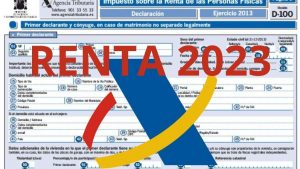Are you the owner of a property that you have rented out and are wondering how to correctly declare the profits you have made? Don’t worry! Here is an easy-to-follow guide to help you meet your tax obligations accurately and smoothly.
- Gather all necessary documentation: Before you begin, make sure you have all relevant documents on hand, such as rental agreements, payment receipts, invoices for associated expenses and any other documents that support your rental income and expenses.
- Calculate your gross rental income: Add up all payments received from your tenants during the tax year. This includes the total amount of monthly rents, as well as any additional payments for services or repairs.
- Identify your deductible expenses: Determine which expenses associated with renting your property are deductible under current tax law. This may include expenses such as real estate tax (IBI), community fees, mortgage interest, insurance, repairs and maintenance, among others.
- Calculate your net income: Subtract your deductible expenses from your gross income to get your net rental income. This will be the amount you will be required to report on your tax return as rental income.
- Complete your tax return: Use the appropriate form from the tax office to declare your rental income. In box 0102 of the Renta you should put everything you have received for the lease. No reductions and no elimination of expenses. In the following boxes be sure to include all of your net income and provide the necessary information about your deductible rental expenses. Thanks to them you will pay less taxes for renting your home.
If you rented your home in 2023 to a tenant who used it as his or her primary residence, you will only be taxed on 40% of the income you generate from that rental. This benefit derives from the Personal Income Tax (IRPF) regulations, which allow owners to deduct 60% of the tax burden on the net income obtained from the lease.
It is important to comply with the essential requirement that the dwelling be used as the tenant’s habitual residence. Therefore, rentals intended for other purposes, such as offices, commercial premises or professional offices, are not eligible for this deduction.
- Consider the proportion if there are co-owners: If you share the property with other owners, be sure to report only your proportionate share of the income and expenses on your tax return.
- Keep an organized record: Keep all documents and receipts related to your rental income and expenses in a safe and organized place. This will make it easier for you to file taxes in future tax periods and help you be prepared in case of an audit.
With these simple steps, you will be able to declare your rental income correctly and fulfill your tax obligations without complications! Remember that you can always consult with Inmo Empire if you have specific questions or need additional assistance. Don’t wait any longer and make sure you are up to date with your taxes!







